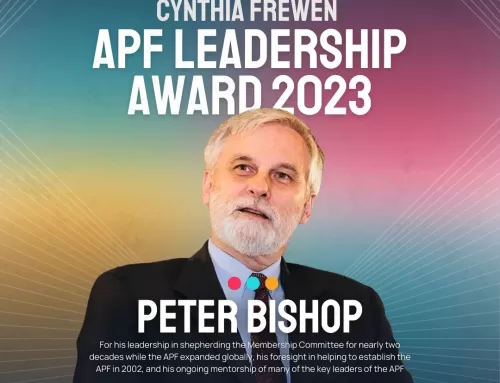 September began with the passing of Australian futurist Richard Neville. He was a prominent 1960s counter-culture figure in Australia, and his satirical magazine landed him in prison in Australia and in the UK. He later evolved into calling himself a “practicing futurist” and was known for being a provocateur.
September began with the passing of Australian futurist Richard Neville. He was a prominent 1960s counter-culture figure in Australia, and his satirical magazine landed him in prison in Australia and in the UK. He later evolved into calling himself a “practicing futurist” and was known for being a provocateur.
There was news of a new book released by “Technology vs. Humanity” by futurist Gerd Leonhard. An interesting note for futurists is that it was published by the foresight firm “Fast Future,” who has made a move into publishing futures books. And, of interest to our program, one of the editors is alum April Koury! The book explores the question: “how can society stay in control as machines enter deeper into our lives, our bodies and eventually our brains.” It looks at how humans are constantly struggling with the urge to upgrade and automate even to the point of how much bio-tech is too much in humans. Is there a line that if crossed could be a turning point of humanity of mixing man and machine?
A book that asks these serious questions and comes from a humanist and futurist could help gain even more traction for professional futurists. It helps raise the awareness that we aren’t just trying to nail down when cars will fly. We are looking at serious topics that could change the course of humanity.
Also this month Ray Kurzweil, of Google and a Singularity University fame (among other things), discusses the large shifts and rapid trajectory of information technology and computing power, energy, nanotechnology, robotics, health and longevity. Another popular keynoter, Jack Uldrich, offered the following quip when asked what the future will look like: “predictably unpredictable.”
It was interesting to note that the financial press highlighted the hiring of a “Health IT Futurist,” Mark Anderson by Innovaccer Inc, a Silicon valley based Big Data analytics company. It’s the first time we’ve seen Health IT Futurist as a title.
Last but not least, Ford’s in-house futurist Sheryl Connelly shared her day-to-day approach and how she manages being an organizational futurist in an interview with thememo.com. Our students would be interested in how she became an organizational futurist: “My path to becoming a futurist has been a very unlikely one. I studied finance in undergrad, have a law degree and masters in business administration. My first assignment with Ford was answering the customer service line. Then I went onto sales, wholesaling product to Ford dealers. The opportunity to join the trends team was an unexpected one. I didn’t even know the position existed.” — Waylon Edens

